- Write by:
-
Wednesday, April 21, 2021 - 19:40:21
-
465 Visit
-
Print
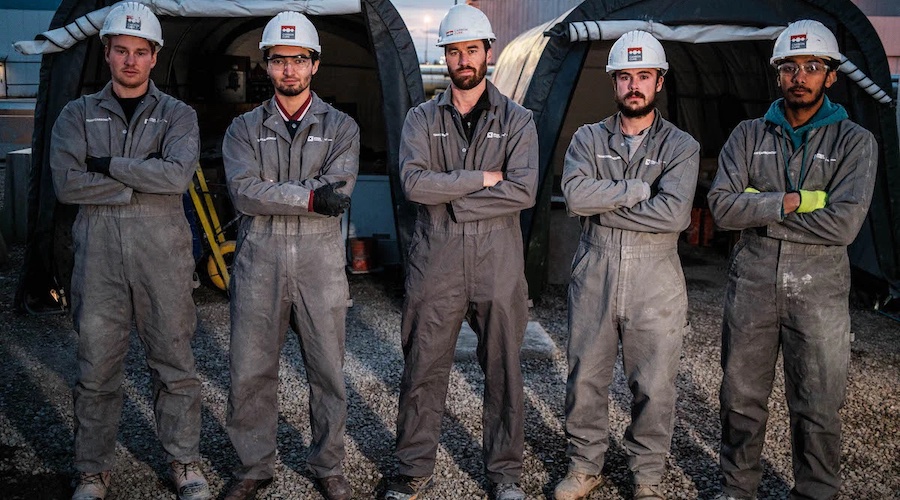
Mining News Pro - Two projects, one Canadian and one American, aimed at mitigating the carbon footprint of concrete were awarded $7.5 million each after being selected as the winners of the NRG COSIA Carbon XPRIZE, a five-year competition organized by nonprofit organization Xprize.
The American winner
One of the projects is called CarbonBuilt and it was developed by researchers at UCLA. The objective of this undertaking was to take carbon dioxide emissions directly from coal-fired power plants and other industrial facilities — emissions that would otherwise go into the atmosphere — and infuse them into a new type of concrete the team invented.
According to the group, as it hardens and gains strength, the specially formulated concrete permanently absorbs and traps the greenhouse gas.
Through extensive research at UCLA and testing at the Integrated Test Center, a facility in Wyoming, the researchers demonstrated that their process reduced the carbon footprint of concrete by more than 50% while producing concrete that was just as strong and durable as the traditional material.
Inspired by seashells, which are made of calcium carbonate – nature’s original cementation agent -, the team led by Gaurav Sant developed a new formula for cement, which is the binding agent in concrete. They used hydrated lime, or portlandite, which can absorb CO2 quickly, to replace traditional calcium silicate cement, known as ordinary portland cement. Then, they created a method in which carbon dioxide taken directly from flue gas is quickly absorbed by portlandite as the concrete hardens.
In addition to allowing for the absorption of three-quarters of a pound of carbon dioxide per block, CarbonBuilt’s Reversa process proved that it is possible to reduce the amount of ordinary portland cement needed to produce concrete by between 60% and 90%. The process also occurs at ordinary temperatures and pressures.
As a result, the Reversa mechanism is said to reduce the carbon footprint of concrete by more than 50% while generating a product that is just as strong and durable as the traditional material.
The Canadian winner
The other half of the Xprize was awarded to Canada’s clean-tech company CarbonCure, whose project was focused on improving existing technologies and developing new solutions to reduce the carbon footprint of the concrete industry.
CarbonCure Technologies’ system consists of injecting a precise dosage of CO2 into a concrete plant’s reclaimer system, which contains the water used to wash out concrete trucks and mixers. The carbon dioxide is converted to a permanently embedded mineral with strength-enhancing properties which can then be incorporated into new concrete mixes.
By reducing the amount of new freshwater, solid waste disposal and cement required, the team was able to reduce the material costs and increase profitability for concrete producers.
The CO2 employed in this process is sourced from industrial emitters. According to CarbonCure, established gas suppliers collect, purify and distribute the gas, which is later on stored at concrete plants in pressurized tanks that are refilled regularly by suppliers.
“The use of CO2 in concrete is expected to become a $400 billion market opportunity so solutions like CarbonCure’s are both very timely to respond to climate targets and represent an attractive economic opportunity for heavy industry,” the Nova Scotia-based firm said in a media statement. “To date, producers have supplied nearly 10 million cubic yards of CarbonCure concrete to a wide range of project types. The company is on a mission to reduce embodied carbon in the built environment by 500 million tonnes annually by 2030.”
Short Link:
https://www.miningnews.ir/En/News/612228
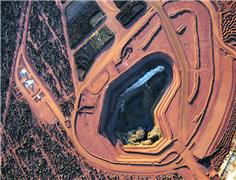
Australian miner Lynas posted a slump in third-quarter sales revenue on Wednesday, missing analyst expectations on the ...

Zimbabwe’s President Emmerson Mnangagwa has re-appointed Winston Chitando as the southern African nation’s mines ...
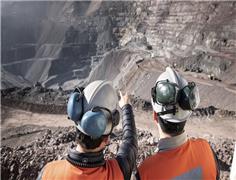
Anglo American Plc said it is has received an unsolicited non-binding combination proposal from BHP Group.

Australia’s Fortescue on Wednesday logged a larger-than-expected decline in third-quarter iron ore shipments, following ...
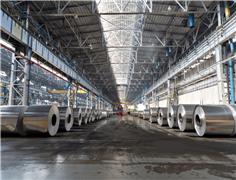
The London Metal Exchange is imposing new rules surrounding the movement of metal in its warehousing network, taking aim ...

Canada has granted Airbus a waiver to allow it to use Russian titanium in its manufacturing after becoming the first ...

AbraSilver Resource said on Monday it has received investments from both Kinross Gold and Central Puerto, Argentina’s ...

A Russian arbitration court ruled on Monday that four units of Swiss commodities trader Glencore will pay more than 11.4 ...
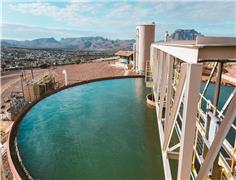
A Native American group has asked all members of a US appeals court on Monday to overturn an earlier ruling that granted ...
No comments have been posted yet ...